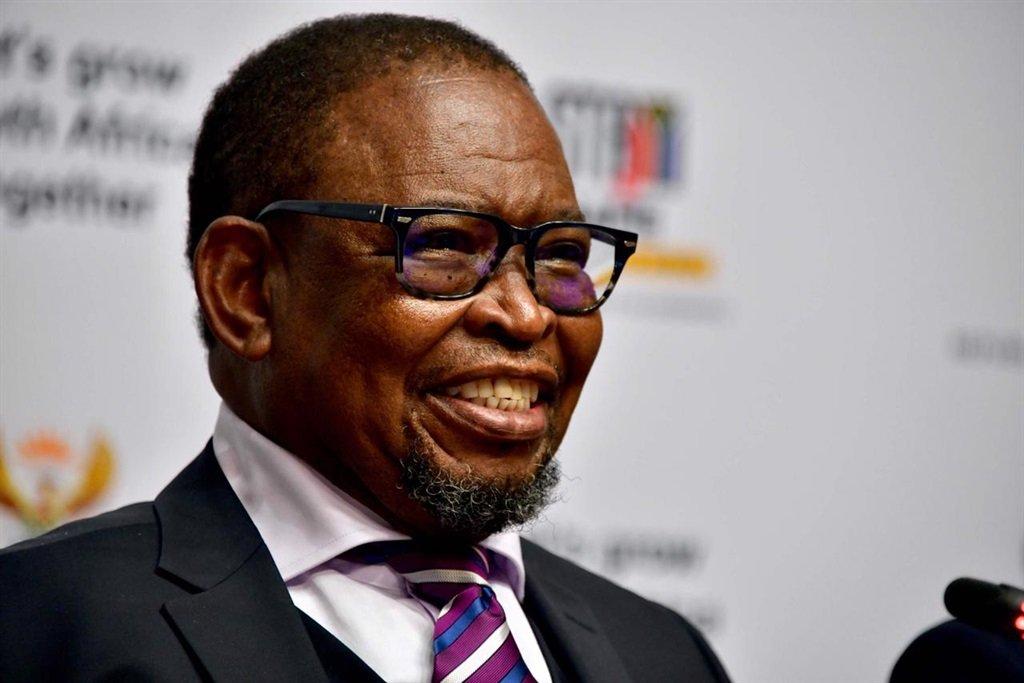Africa-Press – South-Africa. Operation Vulindlela has made progress on several objectives in the first quarter of this year, with several policy interventions already in place, according to Minister of Finance Enoch Godongwana and Minister in the Presidency Mondli Gungubele.
But Operation Vulindlela was still experiencing challenges in two areas, namely the emergency procurement of 2 000 MW of energy and raising the country’s energy availability factor to over 70%. This comes as the country saw five evenings in a row of load shedding as Eskom battled constrained supplies.
The two ministers briefed the media on progress in the government’s structural reform plan, Operation Vulindlela, on Friday afternoon. They said Operation Vulindlela had already achieved reform in eight areas, while Vulindlela was making progress in another 11 areas. In addition to energy-related constraints, five other areas were also experiencing delays, they said.
Operation Vulindlela was announced by President Cyril Ramaphosa last year as a strategy to provide policy certainty and accelerate the pace of structural reforms in energy, telecommunications, water supply, transport and the visa regime that attracts investment, skills, and tourism.
Godongwana said the structural reforms contained in Operation Vulindlela, if implemented well, would lead to benefits, including policy certainty, investor confidence, and improved efficiency of resource allocation.
“In digital communications, the successful allocation of high demand spectrum not only raised more than R8 billion for the fiscus, but recent indications also show that the industry will invest R50 billion on the back of this.
“In transport, the successful implementation of third party private investors can free up R58 billion. In electricity, where we are working with the private sector to unblock the remaining challenges to free up embedded generation, we can realise an investment of R54 billion,” Godongwana said.
Godongwana said, of 26 prioritised reforms, eight were completed, and another 11 were progressing. Gungubele said the government planned to provide quarterly updates on the progress of Operation Vulindlela.
“One of the most important roles of Operation Vulindlela is to coordinate the structural reforms in the government of various departments. We have made progress since the announcement to accelerate reforms, but we know there is still a long way to go,” said Gungubele.
Chief director of microeconomics in the National Treasury, Nomvuyo Guma, said one of Operation Vulindlela’s successes in the first quarter of this year was the spectrum auction, which was concluded despite litigation from some players in the auction process.
Operation Vulindlela: Too early for congratulations, says business
Guma also said the energy sector made progress, with the launch of bid window 6 of the Renewable Energy Independent Power Producer Procurement Programme announced in April with 25 bidders named to provide nearly 2 600 MW of winder and solar photovoltaic power.
She said there were also plans to conclude the analogue television broadcast signal switch off. She said Transnet had to move to sell 16 freight rail slots to private operators in April before the White Paper on National Rail Policy was released this past Wednesday to expedite the reform.
“There is a process to establish an economic regulator, and in an ideal world, it would be in place. And that is what we are working towards. But we can’t wait. Transnet has gone ahead and made slots available to get moving on reform so that once the regulator is in, they can ensure access,” said Guma.
Head of the project management office in the Presidency Rudi Dicks said while both the areas of Operation Vulindlela that were experiencing challenges related to energy, the government was in discussions about how to address challenges and make the energy regime more investor-friendly.
“The reduction in the timeframe for generation projects from 107 to 57 days is a good example. We are having conversations and continue to keep colleagues updated when it comes to mining license applications, and this is an important area,” said Dicks.
Godongwana said Operation Vulindlela had the potential to raise economic growth beyond the current sub 2% level and create over 1 million jobs compared to a scenario without any reforms.
Get the biggest business stories
emailed to you every weekday.
For More News And Analysis About South-Africa Follow Africa-Press






